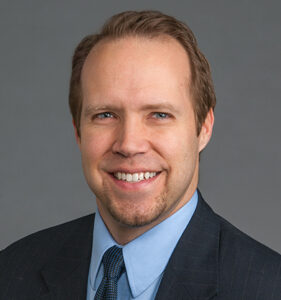
Institution Spotlight: Stanford Cancer Institute
April 24, 2025
Amended Trial: Gelareh Sadigh and Ilana Graetz Give an Update on the EAQ221CD/CONCURxP Trial for Patients with Breast Cancer
April 24, 2025Trial Spotlight: A Closer Look at ECOG-ACRIN’s Studies for Adolescents and Young Adults with Cancer

 By John M. Salsman, PhD
By John M. Salsman, PhD
Cancer incidence rates are increasing among adolescents and young adults (AYAs), ages 15 to 39, and survivors are at risk of cancer- and treatment-related consequences. For more than 2.1 million AYA cancer survivors in the United States, the demands of illness may compound normal developmental challenges and adversely affect physical, emotional, and social health. The ECOG-ACRIN Cancer Research Group’s Adolescent and Young Adult Subcommittee is focused on understanding the unique needs and challenges AYA survivors encounter and developing and testing interventions to improve health outcomes. To that end, we are highlighting two currently open trials: EAQ211: Evaluating the Impact of Social and Genetic Factors on Outcomes in AYA Survivors of Hodgkin and Non-Hodgkin Lymphoma and EAQ202: Improving AYA Self-Reported Data in ECOG-ACRIN Trials.
EAQ211, led by Bradley J. Zebrack, PhD, MSW, MPH (University of Michigan School of Social Work), is a prospective observational study that aims to better understand how the world that AYA survivors of Hodgkin or non-Hodgkin lymphoma live in affects the outcomes of their cancer treatment. Through a series of blood tests and patient questionnaires, the study seeks to establish associations between social-environmental risk factors and alterations in the activity of genes and immune cells. EAQ211 recently expanded its eligibility to include AYA survivors who are within three years following completion of therapy. Actively accruing NCI Community Oncology Research Program (NCORP) sites have found that, in addition to monitoring clinic rosters and schedules to identify eligible participants, reviewing center records for potentially eligible AYA survivors who are within three years following the end of treatment is now an effective recruitment strategy.
The study protocol has been designed to minimize the effort required of site staff. Once recruited to the study, participants receive automated email and text messages to complete online surveys through the electronic patient-reported outcomes (PRO) platform EASEE-PRO. Required blood samples may be collected in the clinic by study staff or via a mobile phlebotomy vendor. Mobile phlebotomy is coordinated by study staff at the University of Michigan using CIRB-approved procedures.
To assist in recruitment, site staff may share this brief 3-minute video and patient-facing website with eligible participants. These materials were produced by the study’s AYA consultants and allow young people to learn about EAQ211 from other AYA cancer survivors.
EAQ202, for which I serve as study chair, is funded by the Childhood Cancer Data Initiative and focuses on the feasibility and acceptability of collecting health-related quality of life (HRQOL) data from AYAs with cancer. By leveraging the EASEE-PRO platform, providing a dashboard of the most common health-related quality of life concerns among AYAs, and randomizing participants to their choice of priority ePROs vs. fixed ePROs, we will identify what HRQOL domains (e.g., pain, fatigue, anxiety, depression, physical function) matter most to AYAs and when, during the first year post-diagnosis. In addition, so that we can begin moving from description to action with PROs for AYAs, we are asking AYAs how they want their ePRO data shared with them, their families, and/or their providers.
To date, we have recruited 447 AYAs for this trial, and we need your help to recruit the remaining 53 AYAs to finish recruitment. All cancer types (except for basal cell skin carcinoma) remain eligible. We are only recruiting AYAs who identify as racial or ethnic minorities and they can be either Spanish- or English-speaking. Additional eligibility criteria are available here. Results will inform future research to address AYAs’ highest priority concerns in order to minimize the adverse impact of cancer and maximize positive outcomes.
Dr. Salsman (Wake Forest University School of Medicine/Atrium Health Wake Forest Baptist Comprehensive Cancer Center) is the chair of the Adolescent and Young Adult Oncology Subcommittee. The committee co-chair is Shira N. Dinner, MD (Northwestern University/Robert H. Lurie Comprehensive Cancer Center).
![ECOG-ACRIN logo[19516]275×75](https://blog-ecog-acrin.org/wp-content/uploads/2021/03/ECOG-ACRIN-logo19516275x75.png)
